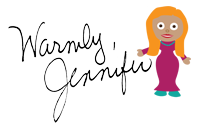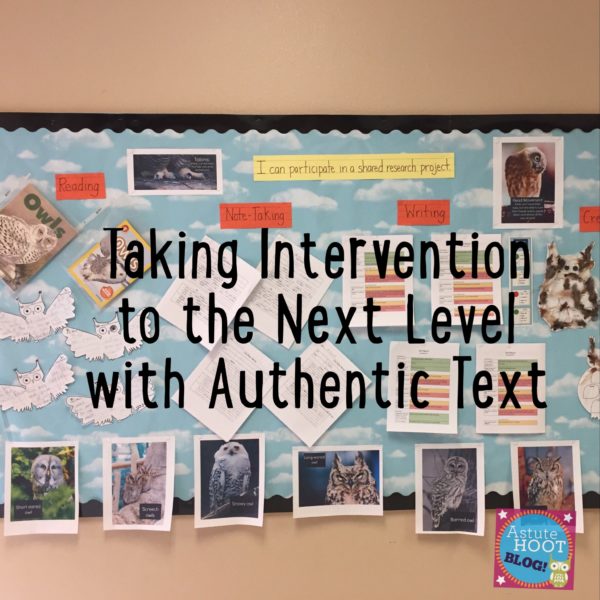As a special education resource teacher, one of the biggest challenges I’ve seen students struggle with is transferring strategies they learn during intervention lessons to authentic text. Often times students can use their decoding skills in controlled text in the resource room, but fall apart when presented with literature, informational text and articles in the general education classroom. Using a research-based, systematic phonics intervention is the foundation of a strong reading intervention program, but students also need opportunities to practice and apply skills with a variety text genres and complexity levels.
In my resource room, I incorporate authentic text as a supplement to the Wilson Reading System. Wilson is implemented with fidelity 3 days per week and on the remaining 2 days, students participate in a book study. Currently, we are working on informational text using a variety of National Geographic Kids Readers. Next quarter we plan to read a variety of popular literature. My students look forward to our book study days each week and are so motivated to read “real books.” I love having the opportunity to provide scaffolded support and guidance while they read complex text. I can coach them to apply strategies, provide immediate error correction, and build independence in safe, supportive environment.
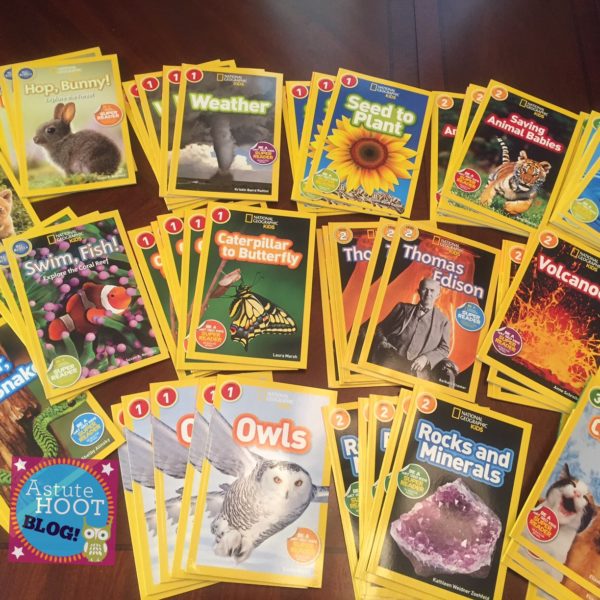
Using a variety of authentic texts allows my lessons to be standards-based and IEP goal based, rather than limited by a particular boxed curriculum, basal reader or worksheet. Each day, I select several words from the text for students to apply their decoding skills using the Word Study printable. I typically choose words that align with what students are learning in Wilson. For example, if our Wilson lesson focuses on the -ing and -ed suffixes, I would choose words from the text which have -ing and -ed endings. It is great for students to make the connection between our phonics lessons and authentic text.
In addition, I choose one comprehension activity in which students can demonstrate their ability to read and understand text. The first time each activity is presented, I model the expectations and skills required. Using the printables from the Book Study Unit consistently helps students become familiar, successful and independent with each task.
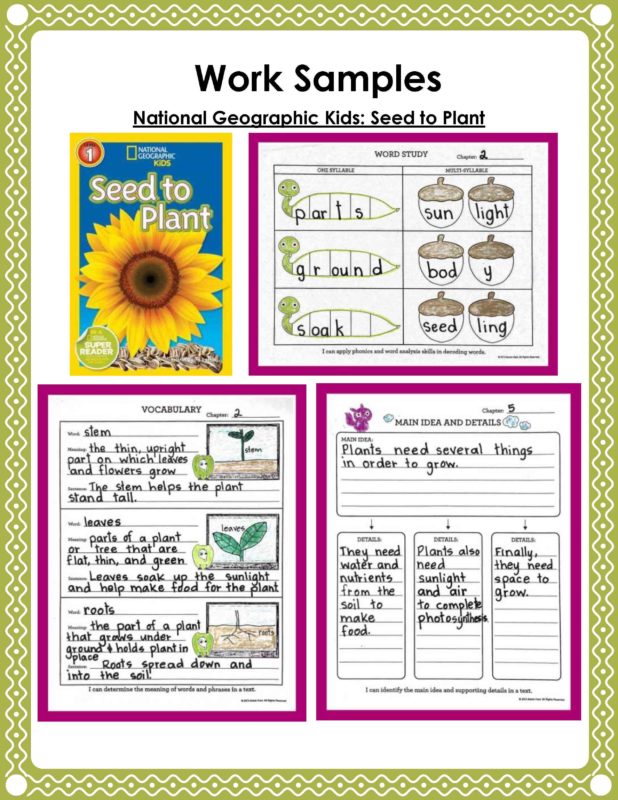
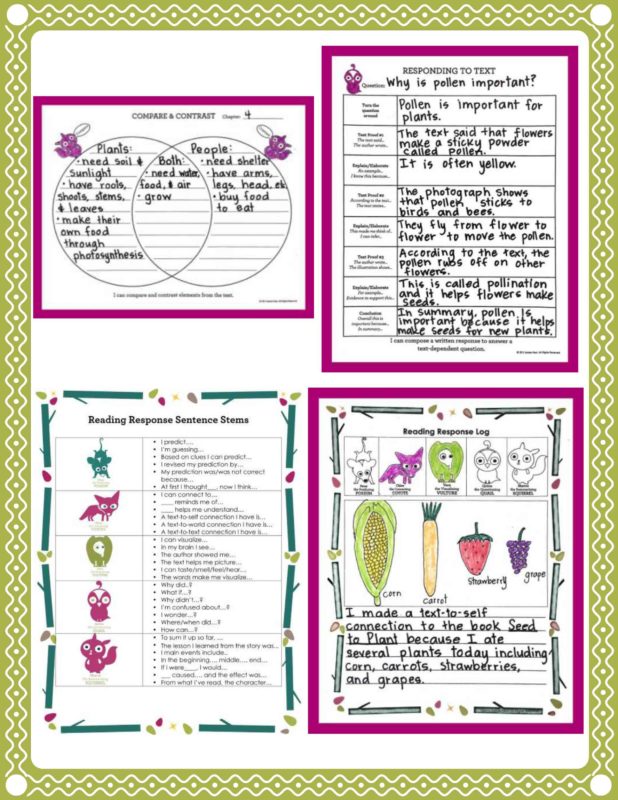
We’ve created ready-to-use book study units for a variety of books including: Henry and Mudge, Frog and Toad, Charlotte’s Web, Stellaluna, Black Lagoon, The Lorax, Miss Nelson is Missing, Last Day Blues and several National Geographic Kids Readers. More titles coming soon!
In addition, we’ve assembled book study unit templates for informational text and literature so these strategies and resources could be customized to ANY book you’d like to use in your classroom. These activities build essential literacy skills, provide easy differentiation opportunities, and promote active engagement with our guided reading strategy animals. These book studies can be used in grades 1-3 with in a variety of settings: general education, special education, intervention, tutoring and ELL. It is recommended to use these templates with a variety of texts to help students master the skills, transfer and apply their strategies in meaningful ways.
These comprehensive book studies include:
- Suggestions for Use
- Lesson Activities
o I Can Posters
o Word Study Activities
o Vocabulary Activities
o Comprehension Activities
o Fluency Activities
o Response to Text - Assessments
- Instructional Resources
- Book Study Unit Plan Organizer
Download the Informational Text Book Study Templates, Literature Book Study Templates, and Ready-to-Use Book Studies today! Comment below if you have a request for a specific book study unit.
